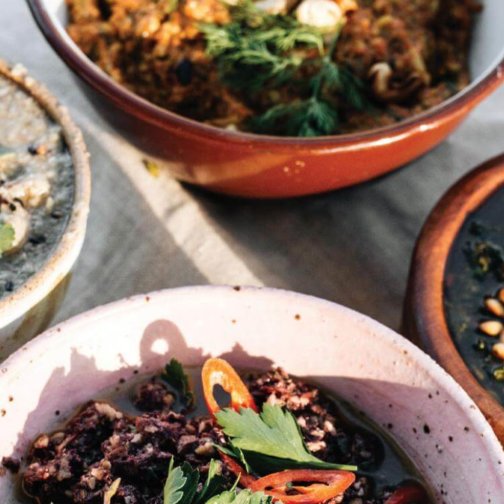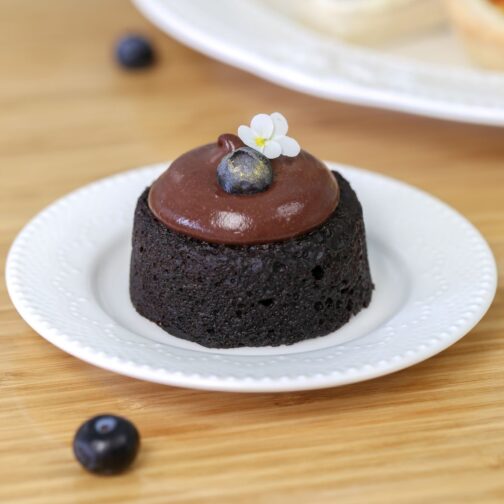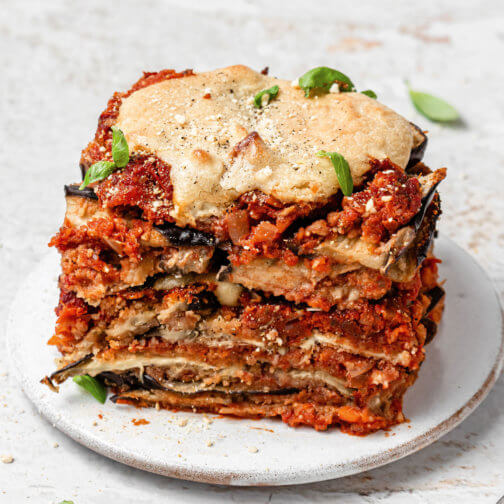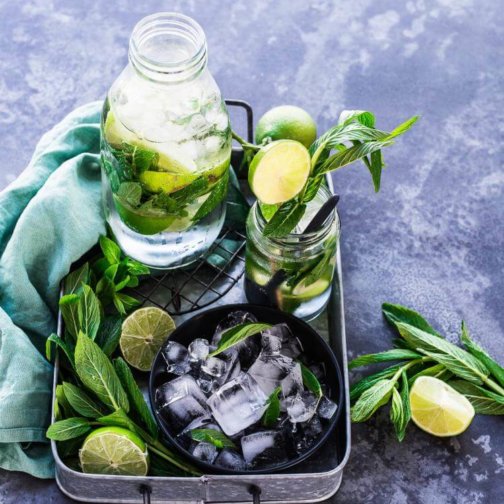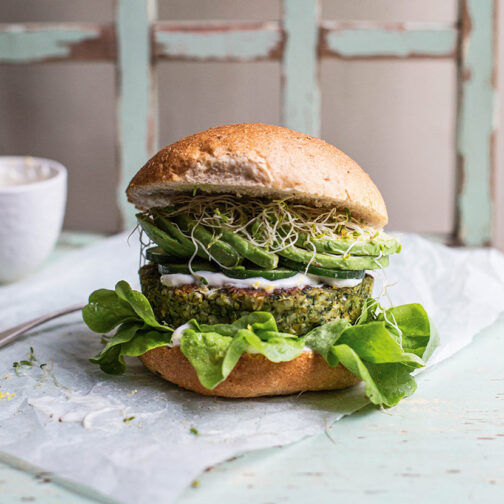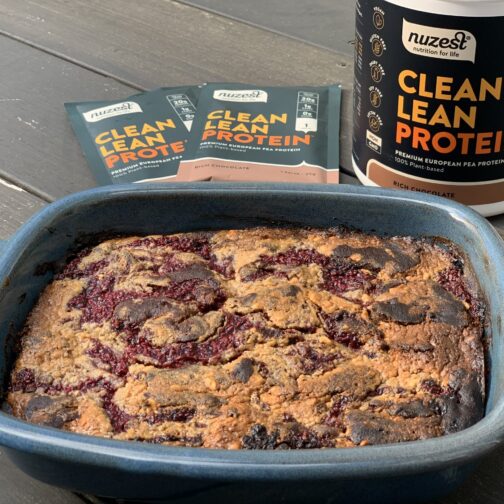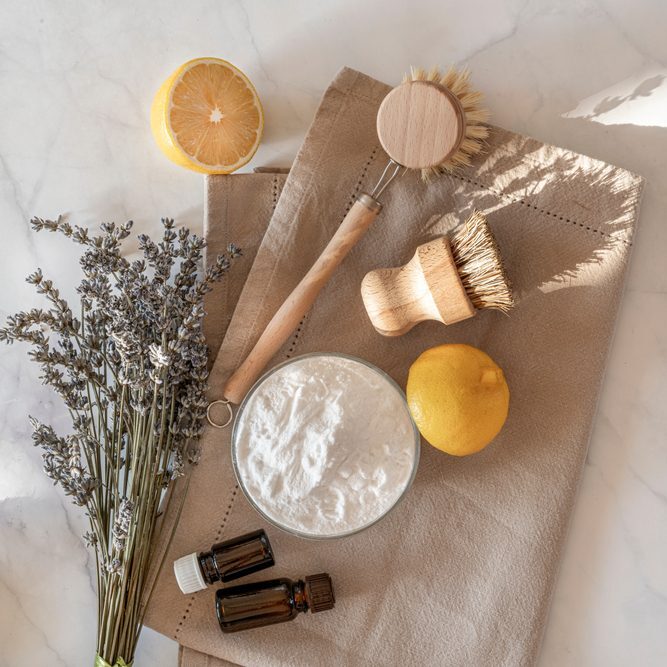
From multi-purpose cleaning spray to body wash, it’s easier than you think to make your own beauty and cleaning products with simple but effective all-natural ingredients.
If you’ve never done this before, have a look at some of the cleaning products in your home – whether they be beauty, cleaning, or laundry products. You may be surprised to find a number of them contain chemicals known to pose risks to our health and the environment. Just a few of the common ones are:
- Aluminium Chlorohydrate – a light metal found in antiperspirants and used to block pores to reduce sweating; accumulates in the body (brain, kidneys, liver), and affects absorption of minerals and neurological systems
- BHT/BHA (Butylated Hydroxytoluene/Butylated Hydroxyanisole) – used as synthetic preservatives and antioxidants; may cause headaches/migraines, allergic reactions, and aggressive behaviour, with BHA listed as a possible human carcinogen
- Cocamidopropyl Betaine – synthetic ingredient used as a foaming agent in products like baby wash and shampoo; can cause contact dermatitis as well as skin and eye irritation
- Diethylene glycol – found in window cleaners; negatively affects endocrine (hormone) processes and foetal development
- Formaldehyde – used in spray and wick deodorisers; known respiratory irritant and carcinogen
- Fragrances – oftentimes petroleum-based; can cause respiratory and skin irritation, headaches, sneezing and watery eyes
- Parabens – synthetic preservative found in a variety of products; these are known endocrine (hormone) disruptors and may also cause skin irritations including hives, eczema, and rashes
- Petroleum – damages mucous membranes and contributes to the depletion of non-renewable resources
- Phenols – found in many disinfectants and toilet bowl cleaners; toxic to the respiratory and circulatory systems
By no means is this a complete list of all the harmful chemicals found in “trusted” products. This may seem scary, but the good news is that you can make many of your own products at home using simple ingredients like bicarb soda, vinegar and essential oils that are safe, affordable, and effective – safer for you, and kinder to the planet, too!
Below is a collection of my favourite DIY recipes. I always recommend using glass or stainless steel containers and high-quality, therapeutic grade essential oils. It’s also good practice to patch test to ensure no staining/discolouration (surfaces) or sensitivities (skin) occur.
Household cleaners
Multi-purpose spray
- 500ml glass spray bottle
- 60ml (¼ cup) white or cleaning vinegar
- 400ml (1 ¾ cups) water
- 30 drops essential oil
Combine, shake before each use and wipe surface clean with damp cloth.
I like to use the following: lemon and lavender; eucalyptus, peppermint and wild orange; lemon, tea tree and clove + one drop oregano.
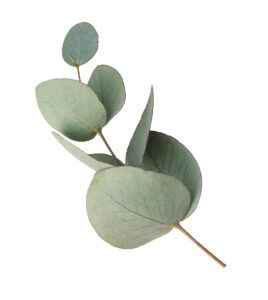
Glass/window cleaner
- 500ml glass spray bottle
- 340ml (1 ½ cups) distilled water
- 120ml (½ cup) white or cleaning vinegar
- 8 drops lemon essential oil
Tip: for a streak-free finish, wipe surface dry with old newspaper.
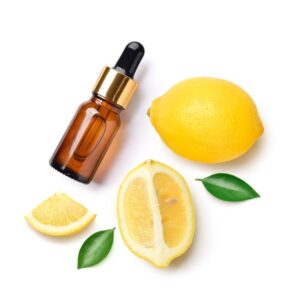
Mould/mildew cleaner
- 500ml glass spray bottle
- 500ml (2 cups) white or cleaning vinegar
- 10 drops each wild orange, clove and tea tree essential oils
- 5 drops oregano essential oil
Spray on mould-affected area and let sit 5-10 minutes. Wipe off with damp cloth or rinse with water. (This one is best not to use on granite surfaces. If using on grout, be sure to wipe/rinse rather than spray and stay.)
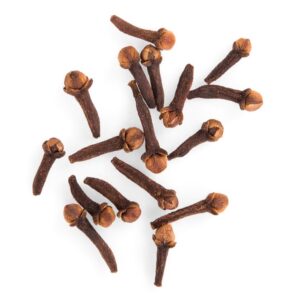
Toilet bowl cleaner
- ½ cup bicarbonate soda
- 60ml (¼ cup) white or cleaning vinegar
- 10 drops tea tree essential oil
Mix ingredients to dissolve bicarb soda, add to toilet, let sit 10-15 minutes, scrub with toilet brush and flush.
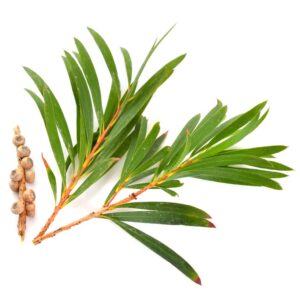
Body products
Body wash
- Glass pump bottle
- 120ml (½ cup) unscented castile soap
- 60ml (¼ cup) vegetable glycerin
- 45ml (3 tablespoons) fractionated coconut oil
- 10-15 drops total essential oil
Shake before each use to combine
I like to use oils like lavender, lemongrass, palmarosa and Roman chamomile. For a more ‘masculine’ aroma, use oils like cedarwood, cypress and sandalwood.
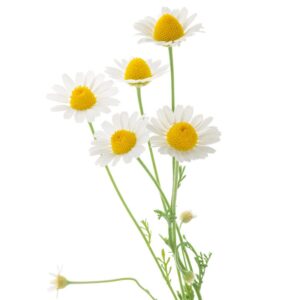
Body wash
- Glass pump bottle
- 120ml (½ cup) unscented castile soap
- 60ml (¼ cup) vegetable glycerin
- 45ml (3 tablespoons) fractionated coconut oil
- 10-15 drops total essential oil
Shake before each use to combine.
I like to use a combination of essential oils including tea tree, lavender, Roman chamomile and lemongrass. Be mindful of using citrus oils, as they contain photosensitive properties and may cause skin irritation or temporarily darken the skin if exposed to sun.
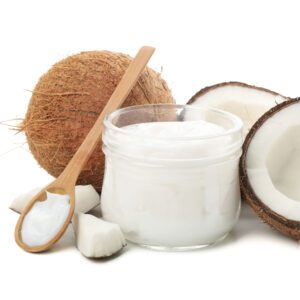
Hand wash
- 500ml glass bottle with pump top
- 2 tablespoons castile soap
- 1 tablespoon fractionated coconut oil
- 10 drops each lavender and tea tree essential oil
Top with water and shake before each use to combine
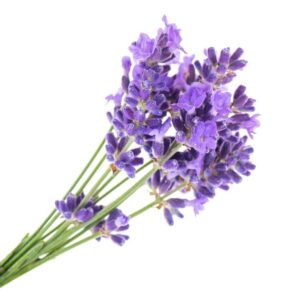
Deodorant
- 1 teaspoon shea butter, softened (optional)
- ¼ cup coconut oil, softened
- ¼ cup total of bicarb/baking soda + cornstarch (you can also use arrowroot powder instead of cornstarch)
- 20-30 drops essential oil
Mix to combine and place in refrigerator for about an hour to set.
I like to use a combination of essential oils including tea tree, lavender, Roman chamomile and lemongrass. Be mindful of using citrus oils, as they contain photosensitive properties and may cause skin irritation or temporarily darken the skin if exposed to sun.
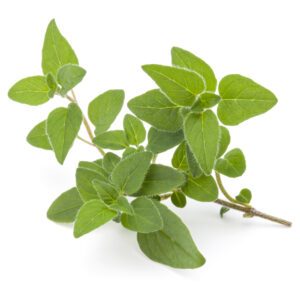
Chesty rub
- ¼ – ½ cup coconut oil, melted
- 10 drops respiratory blend essential oil
- 5 drops frankincense essential oil
- 5 drops cardamom essential oil
Combine all ingredients and put in refrigerator until set. Rub on chest to assist with cough and congestion.
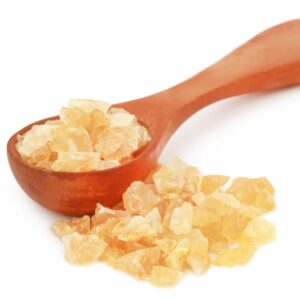
***
The possibilities for DIY products are endless. Don’t be afraid to experiment and have fun! Your body will thank you for it.
Interested in eco-living? Learn to lighten your eco-footprint and improve your health with Endeavour College of Natural Health’s short course, Eco Living: natural choices for a green lifestyle.



